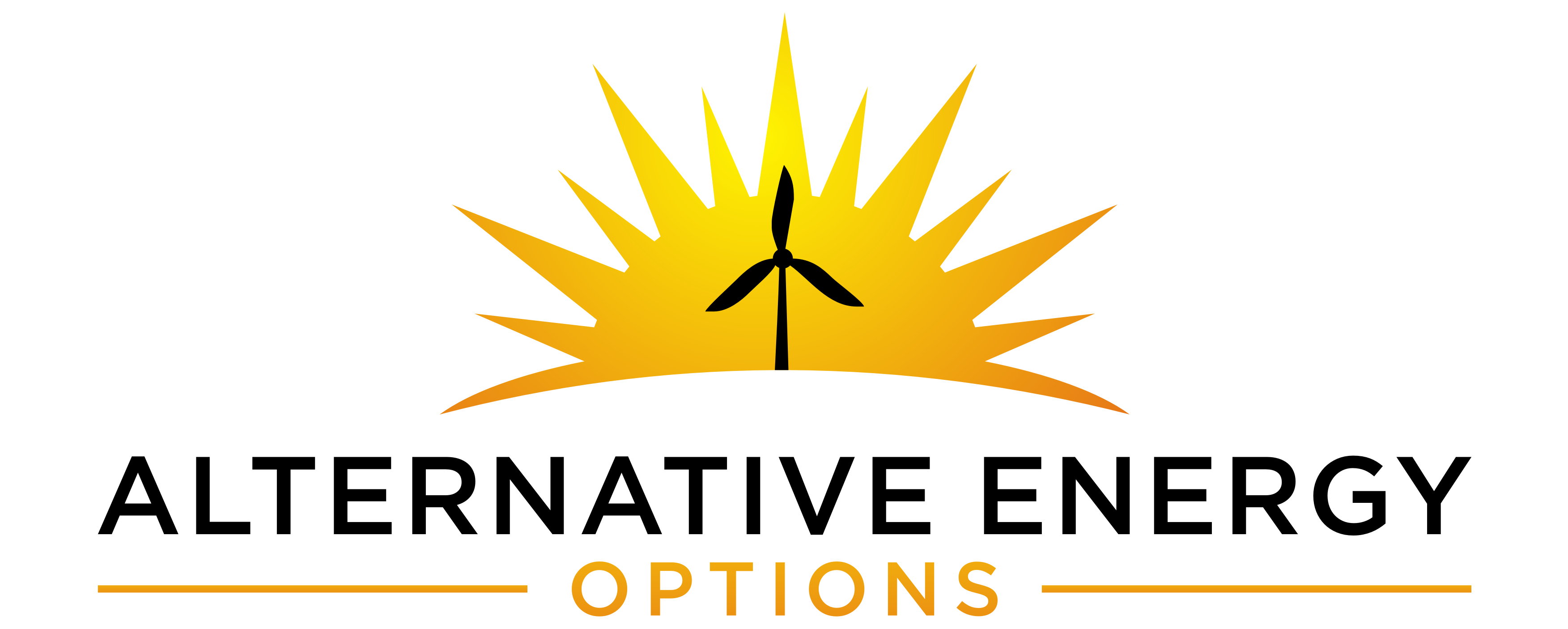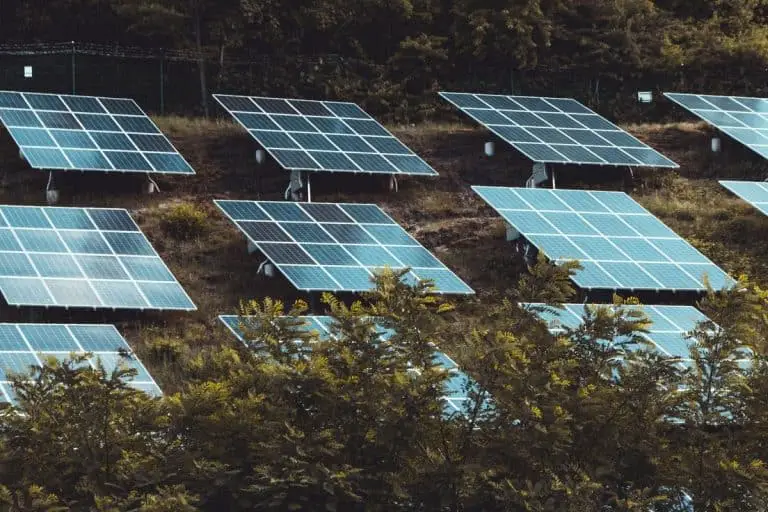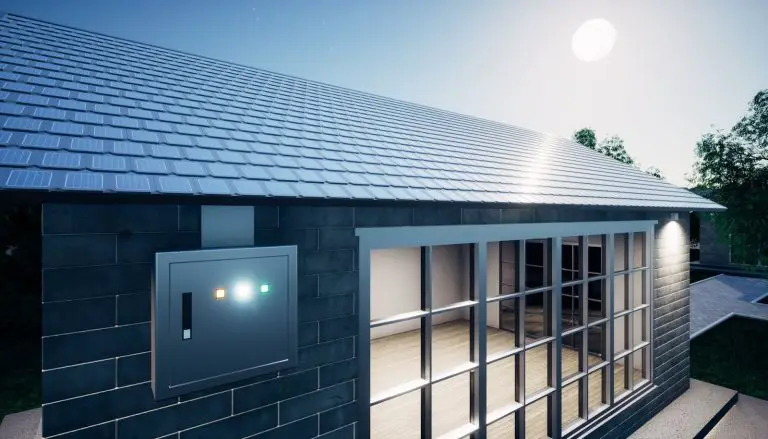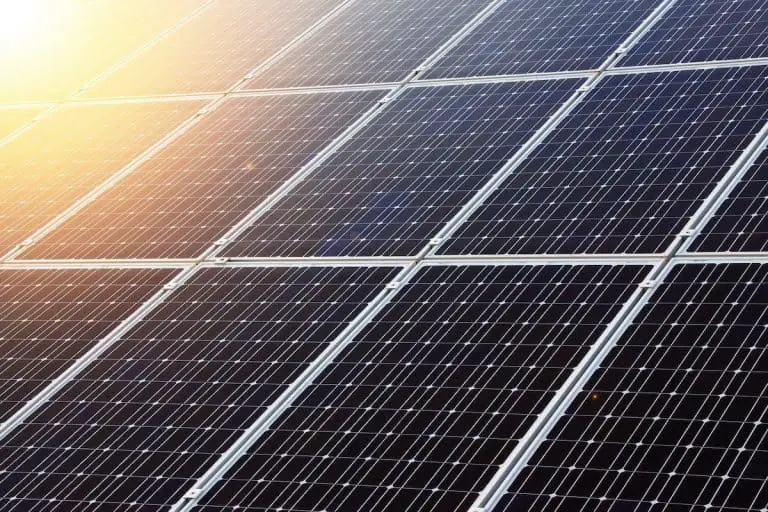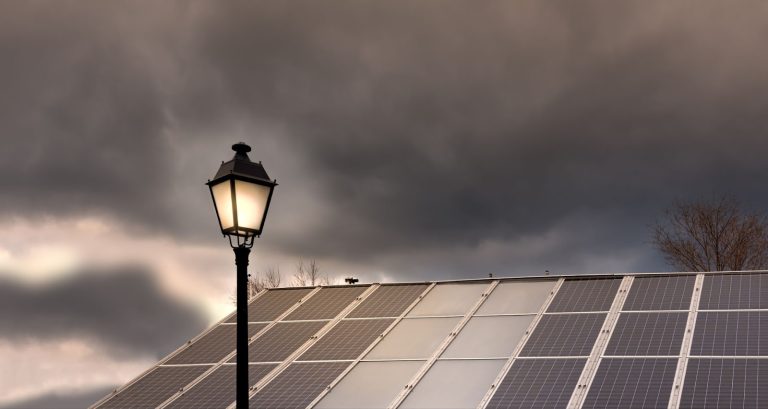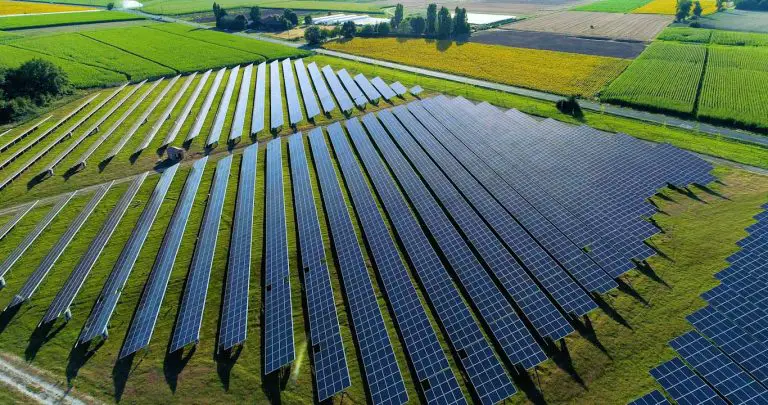Can You Run AC With Solar Power (Yes, Here’s How)
In general, running an AC unit with solar power is possible. However, you have to calculate exactly how big your solar system has to be to make it work, especially if you are powering other appliances too.
Using solar energy to run the AC can be very convenient in summer, especially in those areas where the AC is essential. In addition, solar can considerably lower the electric bill if you have to leave your AC turned on all day.
This article goes over all there is to know about powering your AC with solar panels and how big your solar system should be.
What To Consider When Using Solar Energy To Power An Air Conditioner Unit?
Air conditioner units use a lot of electricity when they are running. Although it is possible to use solar energy to power them, it is necessary to estimate the number of panels required and even the battery bank you will need to run the AC when there is no sun in the sky.
The main factors to take into consideration when looking at solar energy for your AC are:
- How much energy your air conditioner is consuming
- How many solar panels are needed ( and their wattage)
- Battery bank capacity required
- Weather conditions (it could affect the solar panel output)
- If the solar system is connected with the grid
Based on your air conditioning system size, you can figure out how many panels you need and the battery bank. If the weather is not optimum to maximize solar panel output, you know that you might need more efficient panels or extra panels.
How Do You Know How Much Your Air Conditioner Is Consuming?
If you want to estimate the consumption of your AC system, you have to consider the type of air conditioner you want to install or that you have. There are different types of air conditioners. These are:
- Split Air Conditioners
- Central Air Conditioners
- Window Air Conditioners
A split air conditioner consists of an indoor unit and an outdoor unit. On the other hand, a central air conditioner provides cool air to the entire house through ducts. Most of the system is inside the house, while the evaporator is outside.
Window ACs are smaller types of air conditioners that include all the components of an air conditioner, all put together in a compact unit that you can place at a window. In this last case, the air conditioner can cool only a specific room.
Bigger air conditioning systems consume way more than smaller systems. For example, you can expect a window AC to consume around 500 to 1500 watts, while at the higher end, a central AC can consume between 1500 to 5000 watts depending on the model.
How To Calculate The Air Conditioner Energy Consumption
In general, to calculate your air conditioner energy consumption, it is necessary to multiply the wattage of the air conditioner by the number of hours of operation of the air conditioner.
For example, if you have a large window air conditioner with a 1500 wattage, you should multiply this number by the hours you run it. Therefore, if you use the air conditioner for 12 hours a day, then you have to do the following:
1500 watts x 12 (the number of hours of usage) = 18000 Wh
If you are using a large air conditioner system, such as a central air conditioner with a high wattage, such as 5000 watts, for example, and if you live in a scorching area requiring the AC to run all day long, you are looking for at a very high daily consumption.
In an extreme case, with a 5000 watts AC running for 24 hours, you will consume 120.000 Wh.
With such high consumption, solar energy can save a lot in energy bills, even if you use the electricity generated by the sun only during the day.
How Many Solar Panels Are Necessary To Run The Air Conditioner?
Now that you know that an AC can consume up to 120.000, you should calculate exactly how many watts per hour your air conditioner will consume, and from there, figure out how many solar panels you will need.
Solar panels can have different energy outputs; you can deduce that if you get solar panels with a higher output, you can get fewer panels to run your AC. Generally, it is common to find solar panels with an output of 250 or 400 watts.
Ideal Conditions For A Solar Panel
You also have to consider that the output of each panel is not the actual electricity it will produce. So, for example, if you have a 400-watt solar panel, it means that in ideal conditions, that panel could produce 400 watts, but the electricity output is way lower.
When calculating the solar panels necessary to power your AC, you have to consider their efficiency and how much electricity they can produce in an average day when the conditions are not optimum.
For example, in ideal conditions, a 400 Watts panel should produce 9600 Wh, but, depending on the solar panel efficiency, you could expect to get only between 2000-3000 Wh.
What Is The Average Efficiency Of A Solar Panel?
Generally, you can expect a solar panel primarily made with silicon to convert between 20 and 25% of the sunlight received. Depending on the materials and the solar panel size, the efficiency can vary (increasing or decreasing).
What Can Affect The Efficiency Of Solar Panels?
The power output of a solar panel is affected by weather conditions and other factors. For example, solar panels can be covered by ice or various layers of snow if it is snowing. When that happens, the energy produced is considerably lower.
Factors That Can Affect Solar Panel Energy Production
- Snow
- Clouds
- Scorching weather
- Ice
- Dirty panels
- Shading
- Orientation
- Hours of sunlight
During summer, the days are longer, and the solar panels are exposed to several more hours of sunlight. In those days, solar panels could generate more energy. In addition, routine cleaning and maintenance can help improve energy output.
If you have positioned the solar panels to be exposed to shades, this can reduce the energy output since the panels are not receiving sunlight for several hours a day. In addition, the orientation of the panels can help increase or decrease energy output.
Solar panels should be angled toward the sun to maximize efficiency. A flat position or a wrong can reduce a lot of efficiencies.
Solar Panels You Need For Your AC Unit
| Type of AC | Energy consumption | Number of solar panels (200 watts) | Number of solar panels (400 watts) |
| Split Air Conditioners | 700 to 2,000 watts | 4 -15 | 2 – 8 |
| Centra Air Conditioners | 1500 to 5000 watts | 8 – 25 | 4-13 |
| Window Air Conditioners | 500 to 1500 watts | 3 -10 | 2 – 5 |
If you have an AC that requires 3500 watts, and if you use the latest commercial solar panels of 250 or 400 watts, a 15-20 solar panel system is sufficient. If you are powering house appliances, you need a more extensive solar system.
Can A 100-Watt Solar Panel Run An Air Conditioner?
Generally, a 100-watt solar panel is not enough to run an air conditioner; even the smaller AC unit will not work with a 100-watt panel. Therefore, if you use a small air conditioner and run it the entire day, or several hours a day, you need a complete system with multiple solar panels.
Even during the highest peak sunlight, a 100-watt solar panel is insufficient. In addition, you have to consider the solar panels’ efficiency and the fact that you will not get 100 watts per hour.
How Many Solar Panels To Run A Window AC?
A window AC unit can be small, medium, or big size. For example, a smaller window AC unit could run with two 400-watts solar panels. On the other hand, if you have a medium-sized or a larger window AC unit, you might need four or even six 400-watt solar panels.
Considering the weather and other circumstances that can reduce the power output is essential. If you live in an area that doesn’t have that much sunlight, you need to consider extra solar panels to keep your AC running.
What Are The Factors That Affect Ac Power Consumption?
If you use solar energy to power your AC unit, then you want to be careful to reduce energy consumption and make the most out of the air conditioner. Some factors that can make your AC draw more power are:
- The number of people in the house or a room
- The size of the house or the room
- The outside temperature
- Appliances generating heat inside the house
More People, More Electricity Required
The number of people in the house affects the amount of electricity required by the AC. When more people are in the room, the air conditioner has to run harder to keep the environment cool.
A bigger room or house requires a lot more work on the part of the air conditioner to maintain it cooler—the bigger the space, the more power the air conditioner needs.
If you have a central AC and a big house, you should be careful when calculating the number of solar panels required and possibly make sure to install extra solar panels if possible.
Another factor influencing AC energy consumption is the outside temperature. The higher the temperature, the more energy the air conditioner requires.
How To Reduce AC Electric Consumption?
If you want to make sure your solar panels can power your AC unit without problems, you can take action to lower the air conditioner’s operational consumption.
For example, a simple way to reduce air conditioner consumption is to turn it off when it is not necessary.
Another necessary action to maintain a healthy level of energy consumption is routine maintenance of the air conditioner. Regular tune-ups can detect problems with the air conditioner, making it less efficient and drawing more power.
Maintaining An AC System
In general, in a central air conditioner, things like dirty filters can make the air conditioner work harder to cool the environment. Routine maintenance can take care of all these details.
If the air conditioner is old, it inevitably will consume more energy, and a homeowner should consider getting a new air conditioner when that happens.
Another wise thing to do when you run an air conditioner is to close doors and windows to prevent hot air from coming in and cold air from going out. It will also help to cool the room faster.
Sealing and insulating the house is another excellent way to reduce energy consumption and efficiency. Proper insulation can make sure cool air stays inside the home longer. Closing blinds and curtains can also help to keep the environment cool.
What Are The Advantages Of Using Solar Power For Running An AC?
The advantages of using solar power to run an air conditioner are multiple. Here are the main benefits:
- Lower Electric Bills
Air conditioners consume a lot of energy, especially during summer. As a result, those operating an air conditioner, especially a central air conditioning system, can get huge bills during the year’s hottest months.
- The Versatility Of Solar Energy
Once you install solar panels, you can use solar energy to power other house appliances and economize additional money.
While you can power the AC unit during summer, in winter, you could use solar energy to power the rest of your house or provide hot water.
- Eco-Friendly System
Solar energy is environmentally friendly since it leaves no carbon footprints. In addition, solar energy is clean and renewable and doesn’t depend on consuming another type of fuel.
Many homeowners, mindful of the environment, decide to transform their houses from using traditional electricity into one that uses only solar energy.
- Easy To Maintain
A solar system doesn’t require extensive maintenance; once mounted, they do not require much attention. Rain can clean the solar panel surface once in a while, and snow usually falls by itself.
It is possible that with age, solar panels could require a few repairs, but this is all. Solar panels can last up to 20 years without much work by the homeowner.
What Are The Disadvantages Of Using Solar Power For Running An Ac?
There are also a few disadvantages to getting a solar energy system to power the air conditioner. The main disadvantage is the dependency on the weather. If the sky is not clear or the solar panels get into shades, you might have a problem running the AC unit.
Another inconvenience is the need to readjust the solar panels’ orientation with the changing of the season. Often the angle needs to be readjusted to be in direct sunlight.
In addition, solar panels generate direct current (DC), while most house appliances use alternate current (AC).
For this reason, you need to have proper wiring and use an inverter. Another limitation is the limited power supply. Out of your solar panels, you can get only so much energy. You can’t get more if you need it.
Solar energy setup is quite expensive. Homeowners must face a substantial initial investment for the setup and the panels’ purchase. Therefore, it is necessary to have a budget or reserve money to get going with solar energy.
Frequently Asked Questions
Should You Install Additional Panels In Your House?
If you want to feel secure about the energy output of your solar panels and never run out of electricity for the AC, it is better to install extra panels. If you also use solar energy to power other appliances, installing more discussions to have electricity back up if needed is better.
Will Solar Energy Run My Ac During A Power Outage?
In general, the solar system will stop providing electricity when there is a power outage if the system connects to the grid. In this case, if you want to use solar, you need to have a battery backup. You can power your house through a battery system when there is a power outage or no sun in the sky.
How Many Batteries Are Required To Run An Air Conditioner?
If you want to run the air conditioner when there is no sun or during the night, it is necessary to have a battery system. Therefore, to run 1 Ton AC, four batteries with 150 Ah Cells are required.
